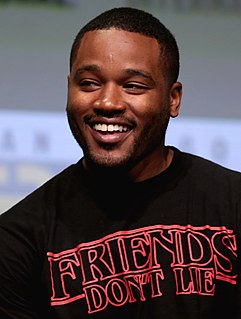A Quote by Geraldine Brooks
When you're writing non-fiction, you go as far as you can go, and then ethically you have to stop. You can't go. You can't suppose. You can't imagine. And I think there's something in human nature that wants to finish the story.
Related Quotes
Learn a lot about the world and finish things, even if it is just a short story. Finish it before you start something else. Finish it before you start rewriting it. That's really important.
It's to find out if you're going to be a writer or not, because that's one of the most important lessons.
Most, maybe 90% of people, will start writing and never finish what they started. If you want to be a writer that's the hardest and most important lesson: Finish it. Then go back to fix it.
Whenever I finish a book, I go off and have some kind of adventure. Having had an adventure in my writing chair or on my writing sofa, an internal adventure, then I need to balance that off with an external adventure, so I'll go tramping through Africa or whitewater rafting or float to Hawaii in a martini shaker or something.
A lot of people just go to movies that feed into their preexisting and not so noble needs and desires: They just go to action pictures, and things like that. But if you go to foreign films, if you go to documentaries, if you go to independent films, if you go to good films, you will become a better person because you will understand human nature better. Movies record human nature in a better way than any other art form, that's for sure.
I think it's human nature to go and to watch things that are done, and see the flaws, but I cannot think of anything that we would want to go so far as to completely change or redo to be honest with you. I think there are characters, you look at the Thor: Ragnarok trailer, there are characters that can evolve and can continue to change and grow throughout.
You have to be dynamic. You have to be able to change. So a lot of times we'll go to a country or go meet people, and then while we're there, the story changes and you have to be able to go with that. And then the story comes out in the editing room, which is a very documentary sort of process - not how news works. So that's different.
I shift between mediums very frequently. Instead of taking a break from writing, I just write in a different medium or in a different way or for a different purpose, so that I don't actually stop writing - I just go to something else. Like going from a big symphony to a piano piece is great and very refreshing, I find. And then going from that to a big concerto, and then having to go out and play.







































